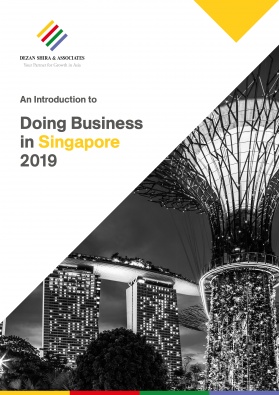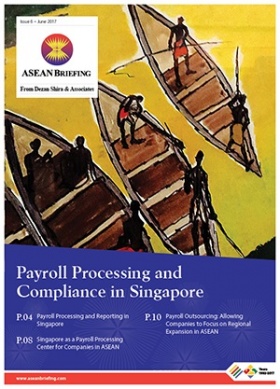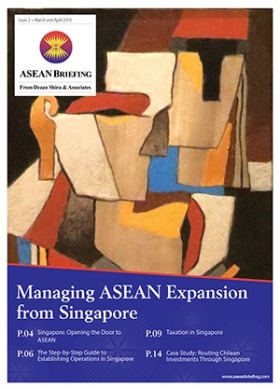Singapore’s Employment Act: The Top 6 Amendments
On April 1 2019, the Singapore government enacted major amendments to the Employment Act (EA). The EA is the country’s main labor law, and the changes affect core human resource (HR) and payroll compliances termination procedures and leave allowances for employers, as well as employees’ rights in the work place.
The new law affects all businesses and all employees – local and foreign – under contract with an employer in Singapore.
The amendments were designed to improve employment conditions by expanding the qualifying requirements around salary and job grades, resulting in every private sector employee now entitled to the rights and protections under the EA.
This was done to closely reflect the changing needs of the country’s employment landscape, with professionals, managers, executives, and technicians (PMETs), predicted to make up some two-thirds of the country’s work force by 2030 compared to just half currently. Notably, the EA applies to foreign employees.Those excluded under the EA are Public servants, seafarers, and domestic workers (they were not included from before) as they are covered by other regulations.
1. Core provisions extended to more employees
Core provisions refer to employee entitlements given to workmen (manual labor workers or blue-collar workers), non-workmen (non-managers and executives, white-collar workers), and managers and executives (M&Es) earning more than SGD4,500 (US$3,240) per month.
After the amendment, the SGD4,500 threshold was removed, allowing an additional 430,000 M&Es to benefit from employment protection under the EA.
The core provisions include:
• Timely payment of salaries;
• Paid annual and sick leave;
• Paid public holidays;
• Protection from wrongful dismissal; and
• Maintenance of employment records.
2. Salary threshold for non-workmen increased
Before 1 April 2019, non-workmen earning up to US$1,800 (SGD2,500) were protected by Part IV provisions of the EA (which provides for rest days, hours of work, and other conditions of service), with overtime rate capped at US$1,620 (SGD2,250).
With the new law in place, non-workmen earning up to US$1,872 (SGD2,600) are now protected by the Part IV provisions and the overtime rate will be capped at SGD2,600.
Managers and executives are not covered under the Part IV provisions.
3. New approach to salary deductions
Prior to the new amendments, employers were limited to the type of salary deductions they could take, such as for absence from work or damage or loss of company property and goods.
Now employers may make other deductions, such as for company insurance plans, but only if the employee agrees to the deduction in writing and can withdraw the consent any time without incurring sanctions.
This arrangement provides employers with the flexibility to cater to mutually agreed deductions while safeguarding the salary of employees.
4. Medical certificates (MCs) and hospitalization leave
MCs issued by doctors and dentists registered under the Medical Registration Act, 1997 and the Dental Registration Act, 1999 is now recognized, whereas previously only MCs issued by the government- and company-appointed doctors were acknowledged. This provides employees with the convenience to visit doctors closer to home.
However, this policy does not impact the reimbursement of medical consultation fees. Employers are only required to reimburse fees from government doctors or company-approved doctors.
5. Working on public holidays
Compensation for working on public holidays has now been extended to all employees.
Previously, when workmen and non-workmen were required to work on public holidays, employers either provided compensation with an extra day’s pay or a full-day off-in-lieu. The new changes will now allow employers to grant time off for the number of hours worked on a public holiday, rather than the full day.
Part IV employees will continue to receive an extra day’s pay or a full day off.
6. Wrongful dismissal
The Employment Claims Tribunal (ECT) will now manage wrongful dismissal claims, which were previously adjudicated by the Ministry of Manpower. Furthermore, the ECT will also adjudicate salary-related claims which were resolved by the Tripartite Alliance for Dispute Management (TADM) — the TADM provided mediation services to resolve disputes before they were brought forth to the ECT.
Employees who felt they were forced to resign and can substantiate their claims can submit a dismissal claim. This is described in the EA as:
• Dismissal due to discrimination based on the employee’s age, gender, disability, nationality, race or religion;
• Dismissal to depriving an employee of benefits/entitlements — such as maternity benefits and bonus entitlements;
• Dismissal to punish an employee for exercising a right — such as whistleblowing.
Additionally, for M&Es to submit a wrongful dismissal claim, they now need to have served a minimum period of six months at their respective companies. Before the reform, M&Es needed to serve one year before making a claim. For non-M&Es, there is no minimum service period required.
Either party could, however, terminate an employment contract by providing written notice or by paying a salary in lieu to the other party.
Impact for employers
In light of these changes, employers need to review their HR policies and handbook.
“The Employment Act reform brings significant changes to the dispute resolution framework, compensation for working on a public holiday, and salary deductions for employees”, said Richelle Tay, Senior Manager at Dezan Shira & Associates in Singapore.
“The core provisions include having a minimum of 7 to 14 days of annual leave, paid public holidays, sick leave, and statutory protection against wrongful dismissal”.
Employers will need to be more cautious when terminating employees, particularly for higher paid M&Es. The practice of inviting employees to resign, often for the benefit of the employee to keep an untarnished employment record, now posts risks for the employer as they could result in a claim of constructive dismissal. This could also affect large-scale redundancies and restructuring strategies.Furthermore, under the new EA, employees have the statutory right to buy out their notice period and thus end their employment. This could mean employers may face the prospect of employees joining competitors earlier as well as having less control over business planning and transitioning.
“Being aware of the scope of these changes will be especially important for HR departments, which may need to make internal policy changes to comply with the new rules and regulations” said Tay.
This could be particularly problematic for companies in fast-moving industries where such mobility provided by the EA could pose business risks and will have to develop strategies to address this issue.
How these amendments will affect Singapore’s reputation as the ‘easiest place to do business’ in the world for the long-term remains to be seen.
About Us
ASEAN Briefing is produced by Dezan Shira & Associates. The firm assists foreign investors throughout Asia and maintains offices throughout ASEAN, including in Singapore, Hanoi, Ho Chi Minh City and Jakarta. Please contact us at asia@dezshira.com or visit our website at www.dezshira.com.
- Previous Article 新加坡金融科技行业的强劲发展
- Next Article How SMEs Can Secure Their IT System: Simple Steps







